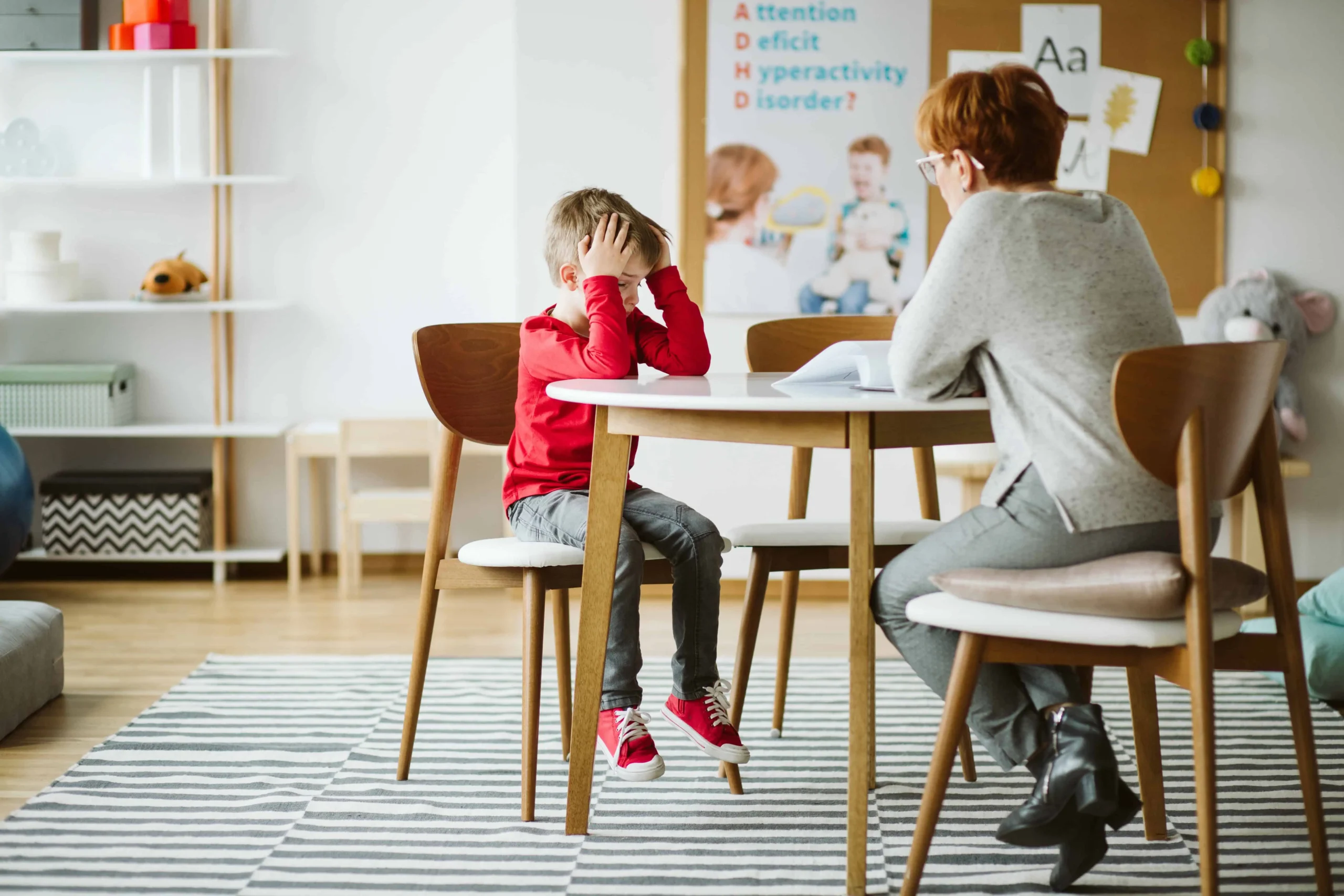Helpful Tips for Navigating Co-Parenting with your Ex-Partner
Ashley French, MSW
Table of Contents
Prioritizing positive co-parenting after separation or divorce is hard, especially after a contentious split. You are dealing with the emotional aftermath of ending your relationship, you might be dealing with new burdens like moving and separating finances, and there can be frequent communication breakdowns with your recent ex. But successful co-parenting plays a vital role in your child’s overall development, so it needs to be a top priority.
Research shows that children whose parents can successfully co-parent after separation or divorce – meaning there is productive communication, consistent coordination, and active parent involvement – feel more secure and confident, form healthier relationship patterns, and navigate challenges more effectively. Experiencing healthy, functional co-parenting is also proven to improve a child’s mental and physical health, reduce the risk of emotional issues such as anxiety, depression, and decrease potential behavioral acting out. Functional co-parenting will also ease the stress your child might already feel from having their parents separate to begin with – like adjusting to separating their homes, their time with their parents, or understanding shifting routines and dynamics
So how do you steer away from conflict and emotional volatility with your ex-partner and instead engage in constructive co-parenting to put the best interests of your children first? Keep reading for some tips on how to set yourself up for co-parenting success:
1. Keep Your Kids at the Center of Every Decision
Of course, you already know this on the surface! But when emotions escalate and the temperature in your coparenting relationship rises, it can be hard to actually put this into practice. It takes strength and commitment to continue putting your child’s needs over your own resentments over and over, yet it is critical for their wellbeing. How can you do this? Reframe your relationship! Stop thinking of your ex-partner as your ex, and instead view them as your new business partner, where your “business” is the well-being of your kids.
How will this impact your children? When children realize that they are more important to their parents than past disagreements, they feel valued, protected, and are better able to trust both of their parents. And remember, kids are constantly watching and mimicking their parents and will learn important problem-solving skills by watching you and your co-parent collaborate.
2. Redirect Your Focus from the Past to the Future
It’s completely normal for personal hurt and unresolved feelings from your past relationship to surface – those emotions are valid and deserve space. But it’s important to remember that those feelings are tied to a chapter in your past, and successful co-parenting requires you to shift your mindset to focus on the future. When you are having parenting conversations and making decisions for your kids, your focus should be on your new partnership with your co-parent and the future your child deserves – where their needs are met, their environment is stable, and both of their parents are supporting their growth at every step.
When this is difficult, focus on goal setting and let your future goals become your guideposts. Set your goals clearly and intentionally – write them down, communicate them with your co-parent, and revisit them often to get conversations and decisions back on track when conflict or emotion threatens to take over.
3. De-Escalate Emotional Situations
When emotions run high during interactions with your co-parent – whether you’re navigating schedules, discussing extracurricular activities, or making a new parenting decision – it is your responsibility to find ways to de-escalate the conversation and return the focus to what matters most – your child. Letting tensions spiral rarely has leads to a productive outcome, and it’s the children who are most negatively affected when things escalate.
So, how do you actually de-escalate conversations to keep things constructive in the moment?
First, set yourself up for success by setting a business-like tone in all communications to help keep things neutral from the start. And remember, taking a business-like stance doesn’t mean making demands. Instead frame things as a request: “Would you be willing to…?,” “How would you feel about…?,” “Can we try…?”
And when emotions start to rise, try these tricks in the moment:
- Pause Before Reacting: If a message or conversation triggers strong feelings, take a moment or two to breathe before responding to prevent a heated reaction that might escalate the situation.
- Use Neutral & Respectful Language: Keep your tone calm and focused on the issue. Avoid blame, sarcasm, or inflammatory statements—even if you’re feeling hurt or frustrated.
- Stick to the Topic: If you see a window to mention an unrelated past issue – don’t! Focusing on the issue at hand keeps the conversation productive and less likely to spiral. And if your co-parent makes a comment about the past that you cannot ignore, ask if you can both agree to focus on the current topic only for the rest of the conversation.
- Take a Break if Needed: If emotions are escalating, it’s okay to step away and revisit the conversation later when both parties are calmer.
How will this impact your kids? One of the biggest reasons your co-parenting relationship impacts your child’s development is that every interaction with your co-parent models to your kids how they should emotionally regulate in high stress situations. Children will see how you handle stress and conflict and use it to guide how they decide to handle stress and conflict in their own lives. One of the most meaningful lessons we can teach our kids is how to stay respectful and emotionally regulated during difficult moments.
4. Create and reinforce constructive communication patterns to last
How you choose to interact with your co-parent doesn’t just impact today – you are creating patterns that will impact how you and your co-parent interact in every future situation – from making decisions about school transitions, celebrating your child’s milestones, and handling future family events like graduations and weddings. So, use every interaction to build a better co-parenting relationship for your future. If you interact positively, that positivity will become a pattern. And over time those patterns create a more cooperative, less stressful dynamic where your children can feel secure knowing their parents are truly working as a team. The more you work on having a good co-parenting relationship now, the easier that relationship will be in the future!
And if you mess up, that’s okay—TRY AGAIN. No co-parent is perfect, and there will be moments when emotions might get the best of you. What matters most is your willingness to reset and try again with intention and care. Apologize if needed, adjust your approach, and move forward. Every time you try again, you’re showing your child what growth, humility, and resilience look like.
5. Take Care of Yourself!
Between managing schedules, regulating your emotions, and prioritizing your child’s well-being, you might feel like there’s no room left for you. But self-care is essential because the healthier you are, the better you will be able to think clearly, communicate kindly, and act as the co-parent you want to be. How do you do this?
- Prioritize Self-Care Activities: I know, I know! We hear this all the time – exercise, journal, read, see friends. Any self-care activity that speaks to you is great and you’re encouraged to find what most resonates. But remember, self-care is not about adding one more thing to your plate, it is about giving yourself the space to actually feel rejuvenated and take a mental break from co-parenting stress. Choose activities that are not just one more check-box on your to-do list, but find those that will actually give you a break – watch a plot-challenged movie, lounge in bed for an extra 15 minutes, shut the door to the messy room that you still need to clean! It doesn’t have to “sound good” to be self-care.
- Find Appropriate Ways to Process Your Emotions: Keeping your emotions in check when co-parenting can be draining. This makes it especially important to take care of your emotional wellbeing. It’s normal to feel overwhelmed, sad, angry, or even relieved after a separation or during tough co-parenting moments. We encourage you to find places outside of your co-parenting relationship to process these emotions – lean on your support network, join a support group or seek professional support when needed. A therapist or coach can provide you with tools for navigating emotional stress, managing conflict, and rebuilding your life post-separation.
- Set Boundaries: One of the most powerful (and underrated) forms of self-care is setting healthy boundaries, especially when navigating the complexities of co-parenting. But boundaries are not meant to be walls you put up, they are supposed to be guidelines that help you feel emotionally safe, reduce stress, and give you clarity you can continue showing up as a calm, consistent co-parent.
- So, what is a boundary? A boundary is a limit that you set for yourself personally to protect your well-being and limit how external people or situations can impact your time, energy, emotions, and physical space. You can set them for yourself, communicate your needs to others, and also practice respecting other people’s boundaries.
- When it comes to boundaries in co-parenting it is important to note that setting boundaries is not about controlling the other parent. Setting boundaries is about controlling how you engage, respond, and protect your well-being. Set boundaries by creating specific agreements with your co-parent for communicating clearly and calmly, prioritizing consistency, and being intentionally respectful. Boundaries like these support a healthier co-parenting environment for everyone.
BONUS TIP: Consider a Co-Parenting Coordinator
Even when you are doing your very best to facilitate a smooth co-parenting relationship, it can be challenging and frustrating. If you are feeling stuck, communication consistently breaks down, or tensions are high, working with a Co-Parenting Coordinator can help. Co-parenting Coordinators are skilled mental health professionals trained in specialty modalities to act as neutral third party who can help parents resolve conflicts, stick to parenting plans, and make child-focused decisions. A Co-Parenting Coordinator can help you succeed at putting the tips outlined in this blog to work – helping you set shared goals prioritizing your child’s best interest, keep conversations focused on the present and the future, de-escalate emotional situations, and teach you and your co-parent new communication skills.
If you are interested in Co-Parenting Coordination, reach out to The Center for Cognitive Therapy and ask for a free 15- minute consultation with one of our trained therapists. We are here to help!






